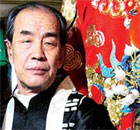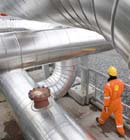News
Energy industry at forefront of foreign investment
(China Daily)
Updated: 2010-03-23 08:07
 |
Large Medium Small |
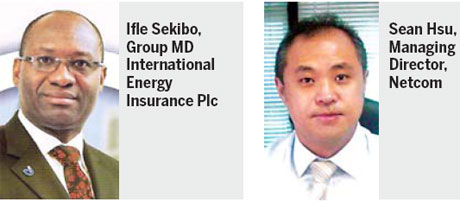
Capital and expertise from China create wide range of opportunities in Nigeria
With Nigeria's upstream oil industry generating an estimated $600 billion in revenues since the 1960s, the sector is the most important component of the country's economic engine.

The government is keen to ensure that the industry develops at a sustainable rate and provides jobs as well as encouraging more foreign investment.
Despite problems in the Niger Delta region, foreign companies remain committed to the industry's development. Nigeria expects total domestic gas demand to jump more than 20 percent a year to 10 billion cubic feet per day by 2015 from around 500 million in 2000.
In addition, the proposed new Petroleum Industry Bill (PIB) will increase transparency across the sector if approved by the national assembly.
"With the PIB, Nigeria will move from being one of the most opaque petroleum nations in Africa to one of the most open and transparent in the world," said former Minister of Petroleum Resources Rilwanu Lukman.
"The texts of all licenses, leases and contracts and any of the changes to such documents will no longer be confidential,"
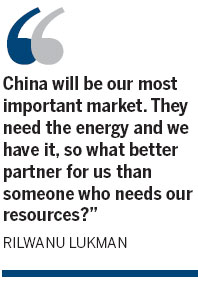
"China will be our most important market. They need the energy, and we have it, so what better partner for us than someone who needs our resources?"
The insurance sector is a relatively new industry in Nigeria as increasing levels of risk awareness among leaders of public corporations and directors of private enterprises generates business for a host of insurers, reinsurers, brokers, agents and loss adjusters.
The National Insurance Commission (NAICOM) is the industry watchdog and compiles annual insurance policy and operational guidelines to operators as part of its regulatory and supervisory tools.
"We are still working on expanding the insurance sector and are encouraging insurance companies to develop new products that are suitable for people from all social backgrounds," said NAICOM Commissioner, Fola Daniel.
"There is huge potential for growth in the insurance sector as Nigeria is a fast developing country with a large population and market penetration is less than 10 percent."
One of the most experienced and successful energy insurance enterprises in Nigeria, International Energy Insurance Plc (IEI) is the leader in its field and is well positioned for strong growth as the oil and gas industry continues to expand.
Established in 1969 as Nigeria Exchange Insurance Co Ltd, the company has experienced a series of transformations and now focuses on the fast-paced energy sector.
In 2007, and with a general insurance license from the National Insurance Commission, IEI became a private company, with the firm's security backed by a consortium of domestic and foreign reinsurers.
The enterprise has enjoyed phenomenal growth and won a large share of the market through its innovation and aggressive business development plan in a notoriously conservative industry.
With the slogan "The Energy to Care", IEI attributes its impressive success to its five core brand values: integrity, friendliness, dependability, innovation and proficiency. Its portfolio of financial services products, of which energy insurance is the flagship, includes mortgages, pension funds and asset management.
Under the guidance of Group Managing Director Ifle Sekibo, IEI is capitalizing on the many opportunities generated by the industry's deregulation and the growing awareness of risk by public and private sector organizations.
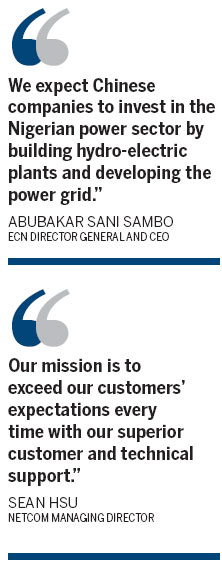
Managing Director IEI Insurance Jacob Erhabor said: "Nigeria's insurance sector has come a long way in recent years and IEI boasts a unique underwriting proposition in the oil, gas, power, and solid mineral sectors. We cover about 90 percent of the oil and gas market and are very competent in our underwritings as we have converted engineers and professionals with great knowledge of the sector into underwriters."
Under its strategic development plan, IEI works with the Economic Community of West African States to achieve its growth goals through environmentally friendly energies like biofuels.
"Our culture is to look to the future and a greener world," Erhabor says.
With the vast majority of Nigeria's oil and gas reserved exported to other countries, an imbalance has developed in which domestic demand for such products far outstrips supply.
To address these problems, the government developed the Nigerian Gas Master Plan (NGMP) - a program that will boost investment in gas infrastructure and transform the domestic market into a vibrant and fully commercial gas market.
"There is a correlation between energy availability and economic development," Nigeria's former Minister of State for Power Nuhu Somo Wya said. "Our strategy is focused on getting new investors and partners to explore alternative energy sources such as solar and wind power."
China's wealth of experience with coal-fired power plants gives it a major advantage when it comes to exploring ways of developing Nigeria's vast coal resources.
Up to 80 percent of China's energy production comes from coal so China knows how to generate the maximum amount of power from this material.
The government looks forward to Chinese technology being transferred to Africa so it can provide Nigeria with more environmentally-friendly energy solutions.
With responsibility for the development and regulation of the country's energy industry, the Energy Commission of Nigeria (ECN) ensures the Nigerian government has the proper planning structure in place to achieve its goals in power development
"We expect Chinese companies to invest in the Nigerian power sector by building hydro-electric plants and developing the power grid," says Abubakar Sani Sambo, ECN director general and CEO.
"Renewable energy is a very important issue for us and with China's cooperation we can easily develop those resources. We already have pilot projects in wind and solar energy through which we could join forces with Chinese companies."
With the aim of becoming one of the top five chemical distributors this year, Jidanette Holdings Nigeria Ltd is a star performer in the lubricating additives and petrochemicals sectors. The Lagos-based company, which is building two new factories, sells goods to major blending plants across Nigeria and West Africa, and has strong business relationships with major manufacturers in Europe.
"As Nigeria develops, so more people will own cars, increasing the need for blending plants.
"In addition, government investment in the railways will create more opportunities in that sector," said Jide Taiwo, Jidanette's managing director. "China should definitely look at the opportunities in Nigeria's lubricant and petrochemical additives industry."
Nigeria's Information and Communications Technology (ICT) industry and environment is one of the largest and most modern in Africa, with demand for the latest mobile phone and Internet technology growing at an astounding rate.
Playing a leading role in the creation of this ideal growth environment is the Ministry of Information and Communication.
The ministry is responsible for regulating and supervising activities across the sector and as part of its remit, takes the lead in informing and educating citizens and businesses about the government's ICT programs and projects.
"We want to reposition, develop, and improve the major industries that are linked to our ministry so that they benefit the nation," said Dora Nkem Akunyili, former Minister of Information and Communication.
Netcom Africa Limited is one of Nigeria's most successful ICT companies and enjoys a proud reputation as West Africa's leading provider of telecommunications infrastructure, and satellite and wireless broadband solutions.
Founded in 2004, Netcom has grown quickly through its winning combination of next-generation technology in satellite communications and around-the-clock support from the industry's most experienced technical engineers.
The dynamic and award-winning organization has established key operations in 14 countries and gained a domestic share of the market that took its main competitor more than 20 years to achieve.
The success has been built on an aggressive growth strategy that blends outstanding reliability with first-class customer service. By working with some of the biggest commercial and industrial names in the region, Netcom enjoys a diverse customer base and is the best choice for enterprises seeking a reliable Internet service.
Through an advanced communications system that boasts direct connections to top global carriers such as AT&T and Cable & Wireless, Netcom's technology employs state-of-the-art fiber-optic cables and the best satellite technology.
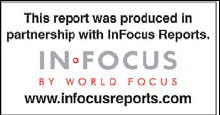
As an experienced provider of ICT services to many Chinese companies in Nigeria, Netcom is the ideal partner for Chinese enterprises and organizations that are eager to succeed in a competitive environment.
"We have worked closely with many Chinese conglomerates in our short history and are always open to mutually beneficial approaches from Chinese companies in the future," states Netcom's managing director, Sean Hsu.
"We see tremendous potential throughout Nigeria and West Africa as we strive to empower people with faster, reliable, unhindered access to information and ideas, making their jobs easier and enriching their lifestyles. Our mission is to exceed our customers' expectations every time with our superior customer and technical support."
(China Daily 03/23/2010 page19)

